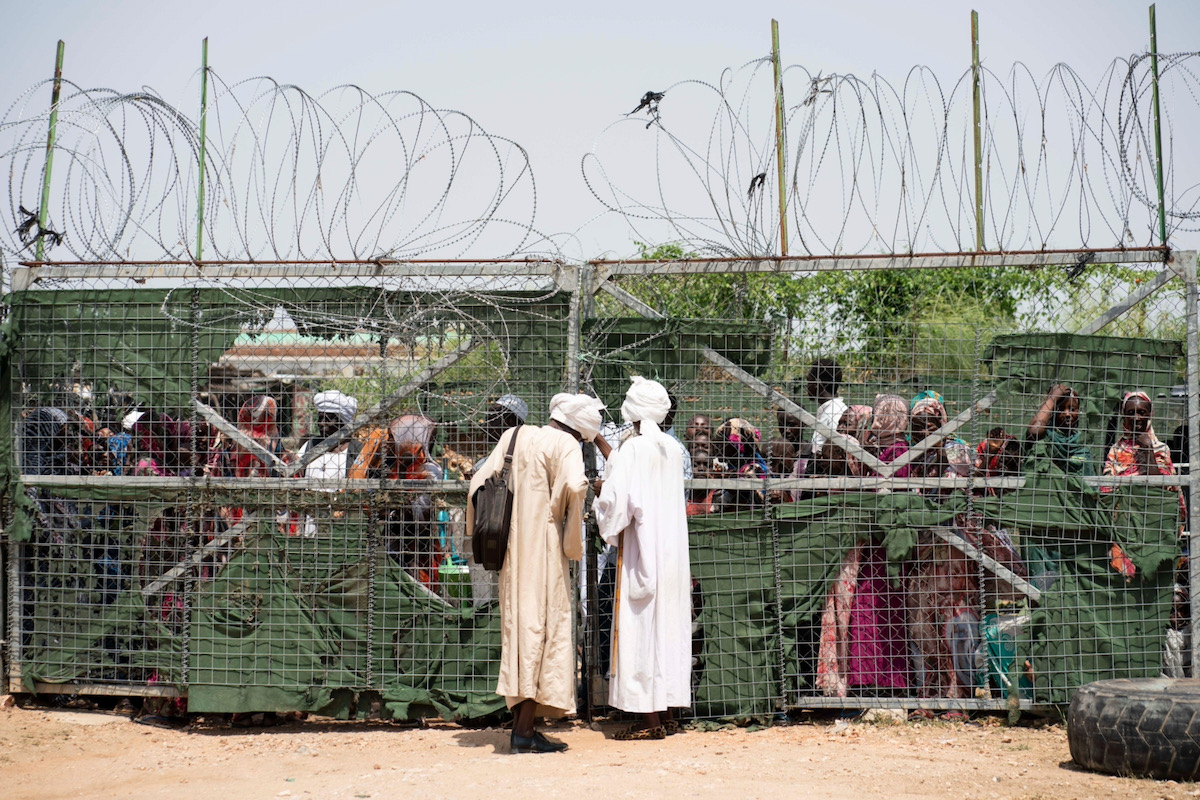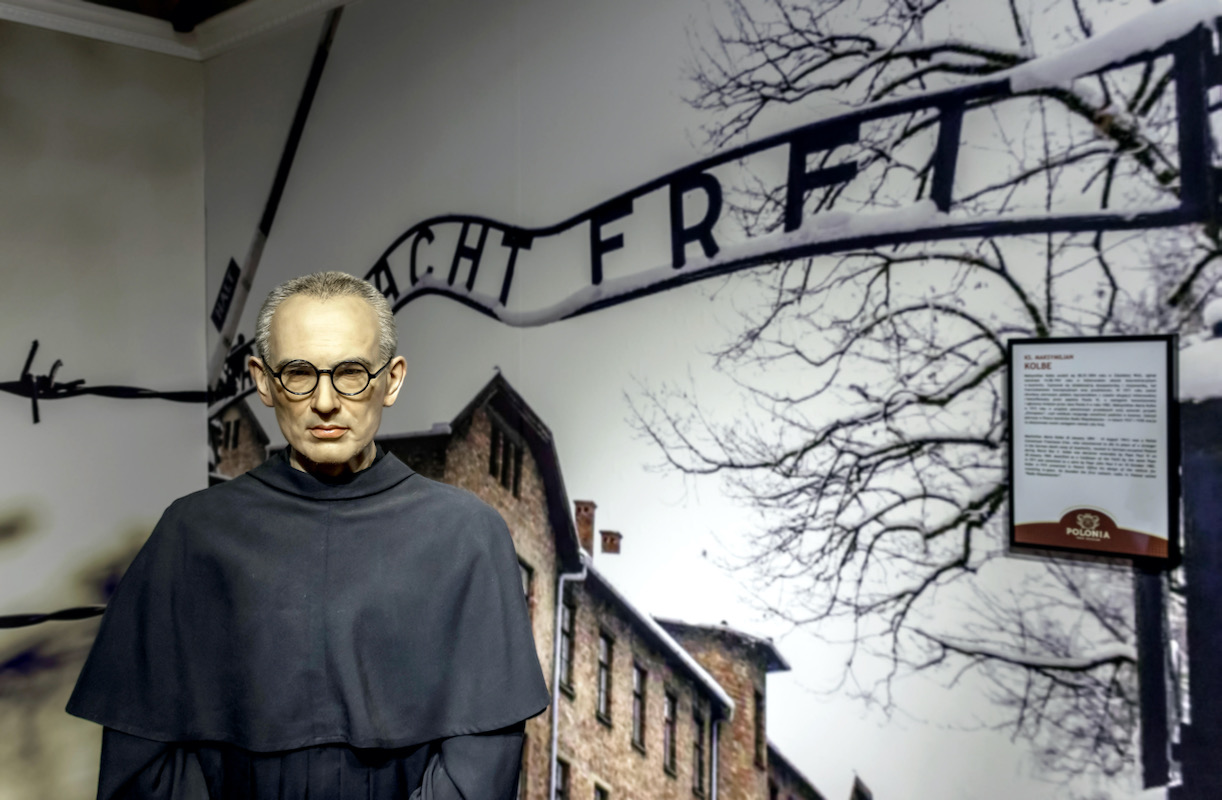The leader of the Irish Church has paid tribute to St Maximilian Kolbe’s “courage” and “priestly witness” in Auschwitz-Birkenau at an event commemorating the 80th anniversary of the Polish martyr’s death.
Unveiling a memorial plaque to the “martyr of love” Archbishop Martin said, “In the midst of that camp of death, where ears were shut to the cries of the innocent, where eyes were blind to the dignity of humanity, where tongues failed to speak truth to power for the sake of those unjustly condemned, Fr Maximilian’s courage and serenity and unconditional service shone out.”
“His was a triumphant testimony to the dignity of every human life, victory of love over hate, of faith and hope over despair, of life over death. His priestly witness continues to speak powerfully to the world and to us, gathered here eighty years later.”
The plaque is located in the Garden of Mercy adjoining St Peter’s Church, Warrenpoint, Co Down. The event was organised by the Belfast-based Consulate General of the Republic of Poland, the Polish Honorary Consulate and Newry & Mourne Polish Community Group.
St Maximilian Kolbe gave his life in place of Franciszek Gajowniczek. He was one of ten men in the camp who had been condemned to death, randomly selected because someone had tried to escape. He was a husband and a father, so Fr Maximilian offered to take his place and with the others was thrown into a bunker and left to starve to death. In the end he was executed by lethal injection on 14 August 1941.
Ahead of the unveiling ceremony, Archbishop Martin concelebrated Mass in St Peter’s Church with Frs Brendan Kearns PP and Krzystof Kosciolek CC of Clonallon along with Fr Maximilian McKeown OFM Conv PP of Fairview parish in Dublin.
After the unveiling, Archbishop Eamon walked with a relic of the Saint along the promenade in Warrenpoint, offering blessings to the parish community and to those who live and work by the harbour.
“They took away his name and, as with all his fellow prisoners, they did their best to remove his identity, to steal his human dignity and his self-esteem; but Fr Maximilian knew that deep down he and all his fellow prisoners could never lose their dignity as children of God, and he would always have his calling to priesthood - for he was ‘a priest for ever’ - who, despite the torture and cruelty around him, could continue to serve, and could remain a strong and steadfast witness to the faith,” Archbishop Martin said in his homily.
He added: “What mattered to Fr Maximilian was not the number they tattooed on his arm, but the indelible spiritual mark of priesthood imprinted on the day of his ordination.
“The concentration camp could now be his new parish; the prisoners, his flock to shepherd. He heard confessions and celebrated Mass in secret; he continually offered prayers and words of priestly encouragement to everyone he met; he shared the meagre food he was given, always witnessing as ‘alter Christus’ – ‘another Christ’. Like Jesus, he prayed for the torturers who beat him and he urged his fellow prisoners to try to find forgiveness in their hearts for those who persecuted them. Blessed are the peacemakers!”
The Archbishop of Armagh said that St Maximilian’s greatest act of witness and love was when he stepped forward to offer his life in exchange for that of a fellow inmate, Franciszek Gajowniczek.
“St Maximilian died as he had lived. He had always witnessed fearlessly to the love and truth of the Gospel.”
He recalled how as a young friar Fr Maximilian had founded the Knights of the Immaculate, a Catholic movement for evangelisation and good works. Later he established a monthly periodical, ‘Knight of the Immaculata’, sending it out in different languages from his newly founded monastery outside Warsaw which became a hub of international Catholic media and communications.
He described St Maximilian’s ministry as an inspiration to all working in Catholic media and evangelisation. Using every means possible, from the printing press, radio, and movies, he had spread the good news and confronted the secular and anti-religious propaganda of his day. In the 1930s he led missions to China, India and Japan - placing all of his endeavours under the mantle of Mary.
“Fr Maximilian’s world of 1941 was filled with spiritual deafness, blindness, and inability to speak out. Sadly, too many people during the Holocaust were unwilling to hear, to see or to speak out about the evil and exploitation, the hatred, bigotry and horrors of their day.”
Archbishop Martin said St Maximilian showed that “even in the most dark, horrific places a heart that is truly open to receiving and giving the love of God can transform everything and everyone around it, and its light can dispel the night-time of fear, cruelty and evil.”



 Loading ...
Loading ...